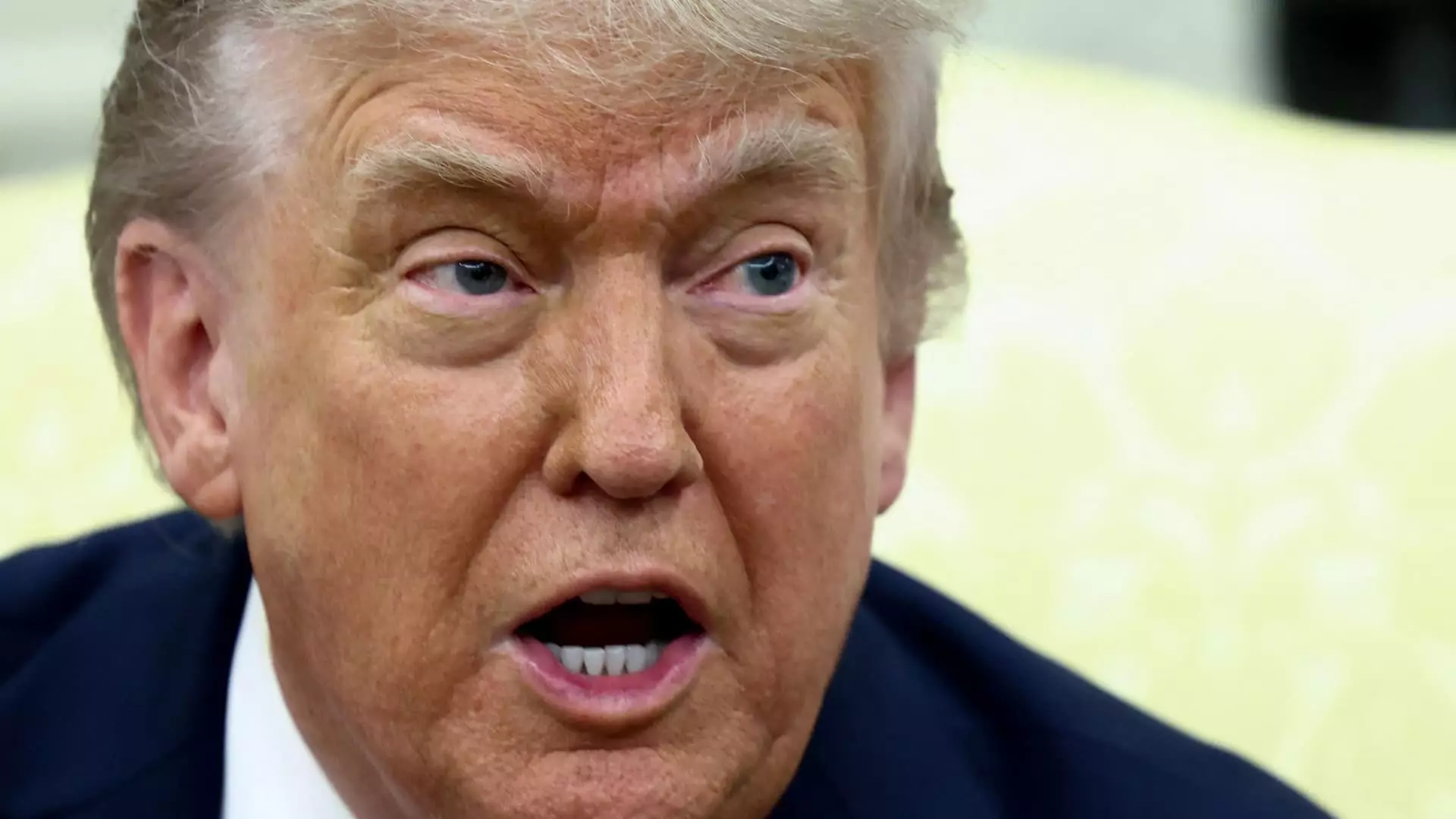The recent spat between Donald Trump and Elon Musk highlights the perils of political alliances forged in the fire of financial ambition. While Musk has often been celebrated as a visionary, his multifaceted enterprises—Tesla, SpaceX, and others—have increasingly intertwined his fortunes with political movements, particularly those aligned with Trump’s brand of populism. Yet this relationship is proving as volatile as a Tesla’s battery in a hot climate. Tensions escalated when Trump criticized Musk for opposing a planned tax bill, which notably strips electric vehicle (EV) credits. Musk’s palpable frustration is emblematic of a deeper, more existential tussle about the future of energy, technology, and policy.
Musk’s Rejection of ‘Pork’ Politics
Musk’s retorts to Trump have been forceful and unvarnished. He dismissed the bill as a “disgusting abomination,” a clear condemnation of what he perceives as excessive wastefulness—a term often flung at policy by those favoring less governmental intervention. His insistence on cutting both subsidies for fossil fuels and excessive government spending underscores a critical point: that sustainability should not come at the expense of substantive policy reform. Instead of merely accepting the elimination of EV incentives, Musk urges a more holistic approach toward governance that prioritizes efficient and virtuous spending. Musk’s remarks reveal an intuition that resonates with many: the need to shepherd funds carefully, particularly when facing a soaring federal deficit.
The Irony of Dependency
What makes this conflict simmer is the irony encapsulated within it. Here stands Trump, a figure who has bolstered his political capital by courting billionaires and tech leaders, defending policies that sacrifice support for green technology, presumably in the name of fiscal conservatism. Meanwhile, Musk, a key financial backer of Trump’s campaign to the tune of $250 million, now finds himself squaring off against the man he initially supported. It might be suggested, tongue-in-cheek, that Trump’s relationship with Musk was always one based on transactions rather than mutual understanding. It begs the question of how alliances are forged in today’s political landscape—are they substantive or merely convenient?
Divergent Visions for NASA’s Future
At the heart of this fallout lies the proposed appointment of Jared Isaacman to lead NASA, a move Trump abruptly rescinded following Musk’s public dissent. The entire endeavor, which should prioritize advancement in space exploration, has become ensnared in the squabbles of personalities and political machinations. Trump’s argument against Isaacman based on his political affiliation is arguably short-sighted, if not reckless. It raises a more significant philosophical issue: Should the political leanings of a nominee matter more than their qualifications and potential contributions to groundbreaking initiatives? When innovation is at stake, it would be prudent to focus on the brightest minds regardless of their party alignment.
The Undercurrent of Political Capital
This public dispute reveals an unsettling truth: political capital is intrinsically linked with financial interests. Musk’s prominence on the political stage has brought forth a new type of vulnerability for both him and Trump. As they project their ambitions, the fragility of their alliance is laid bare—an intricate dance of power where public favor can suddenly shift. For Musk, it’s not just about preserving tax incentives; it’s about advocating for the future of the EV industry, which he argues is essential for mitigating climate change. On Trump’s side, there’s a desire to maintain control and appeal to a voter base often skeptical of corporate leaders.
Overall, as they volley barbs back and forth, one cannot help but see this conflict as indicative of the modern political landscape’s complexities—where personal ambitions, environmental responsibilities, and fiscal conservatism clash in an arena that demands more than soul-sustaining rhetoric to navigate. The public is watching, and the outcomes of such conflicts will shape not only policies but the broader narrative surrounding the United States’ evolving energy paradigm.


Leave a Reply